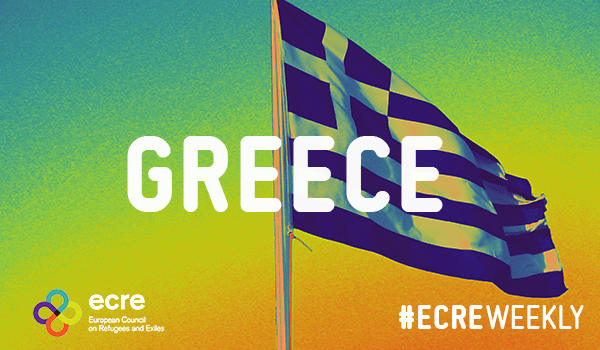Two young asylum seekers sentenced for arson in burned-down Moria camp. Inadequate reception, dire conditions in camps, pushbacks and crack-down on civil society remains the order of the day.
In a controversial ruling the Juvenile Court of Mytilene has sentenced two young people who arrived as unaccompanied children and have just turned 18 to five years in prison. The two were among six people charged with arson in relation to the fire destroying the notorious Moria camp in September 2020. The court did not convict them of the additional charge of belonging to a criminal group. Legal Centre Lesvos representing the youths rejects the sentencing as a miscarriage of justice pointing to procedural failures, doubtful credibility of witnesses and lack of credible evidence.
With the closure of the ‘Filoxenia’ program providing temporary accommodation to asylum seekers, thousands of men, women and children are left to either re-enter camps or sleep rough. The IOM factsheet for February 2021, covering the reception of 28,096 asylum seekers and vulnerable migrants across Greece reveals continued issues of overcrowding in particular camps, and people sleeping in tents, rub halls, common areas and makeshift shelters. The severely overcrowded camp on Samos has seen 8 positive COVID cases, conditions in the so-called Moria 2.0 on Lesvos remain dire, and three people died in a fire in an abandoned building where they were sleeping rough in the northern Greek city of Thessaloniki. The NGO outlet Solomon has been conducting extensive research on the employment realities for people on the move in Greece revealing that despite having the right to work in Greece asylum seekers and refugees face widespread exploitation, and often lack access to legal documents, tax numbers, and bank accounts.
According to Aegean Boat Report, since March 2020 a total of 10,656 men, women and children have been “pushed back from Greek waters – and in many cases Greek land and even refugee camps in Greece – into Turkish waters.” Accordingly, the organisation will, apart from in cases of extreme risk,: “no longer share with the Greek port police the location of men, women and children seeking asylum in Greece”. On 16 March the NGO hotline Alarm Phone reported of the violent pushback of 52 people.
In a submission to the Rule of Law Report prepared by the European Commission, Refugee Support Aegean (RSA) highlights that: “Risks of repression of civil society organisations supporting refugees and migrants have been heavily exacerbated by successive legislative reforms, introducing disproportionate requirements for registration on the NGO Registry managed by the Ministry of Migration and Asylum.” The organisation further notes the rushing through of large reforms without time for legal scrutiny and the undermining of the judicial protection of refugees.
According to the International Organization for Migration (IOM), as of 18 March 2021 a total of 3,372 people have been relocated from Greece to 13 European countries. The aim of the voluntary mechanism is the relocation of 5,200 vulnerable asylum seekers and beneficiaries of international protection, including 1,600 Unaccompanied Migrant Children (UMC) and children with severe medical conditions accompanied by their family members.
For further information:
- ECRE, Greece: Desperation in Moria 2.0, End of Housing Programmes, Continued Pushbacks, and Criminalisation of Solidarity, March 2021
- ECRE, Greece: Authorities Deny Problems in Moria 2.0 Amid Record Winter, Disregard Pushbacks as Fake News, and Continue to Violate Safe-guards of Vulnerable Asylum Seekers, February 2021
- Greece: Growing Local Tensions and Hostility Towards ECRE, Asylum Seekers and Refugees as Government Continues to Implement Permanent Camp Solutions, February 2021
Photo: ECRE
This article appeared in the ECRE Weekly Bulletin. You can subscribe to the Weekly Bulletin here.

